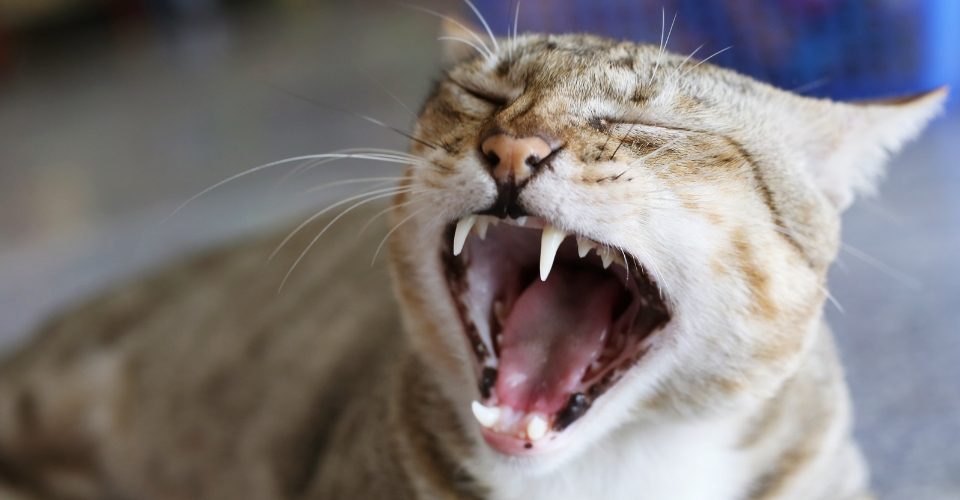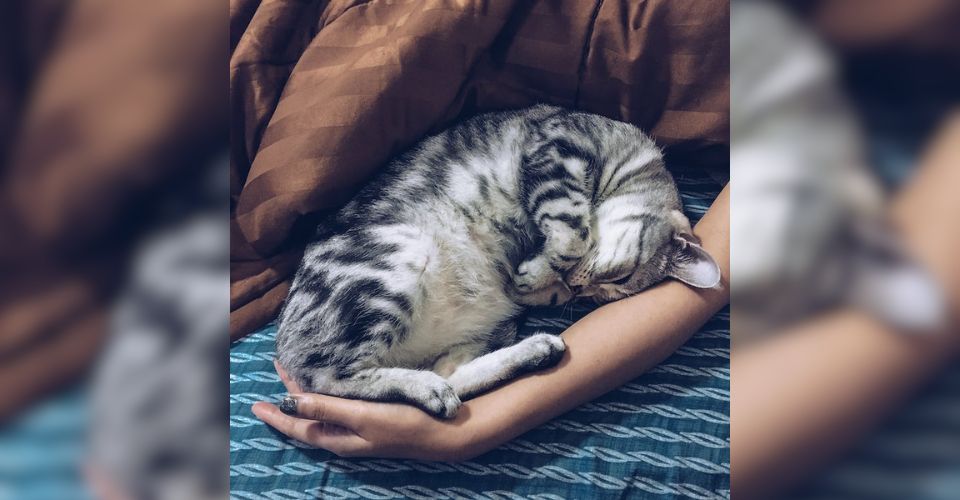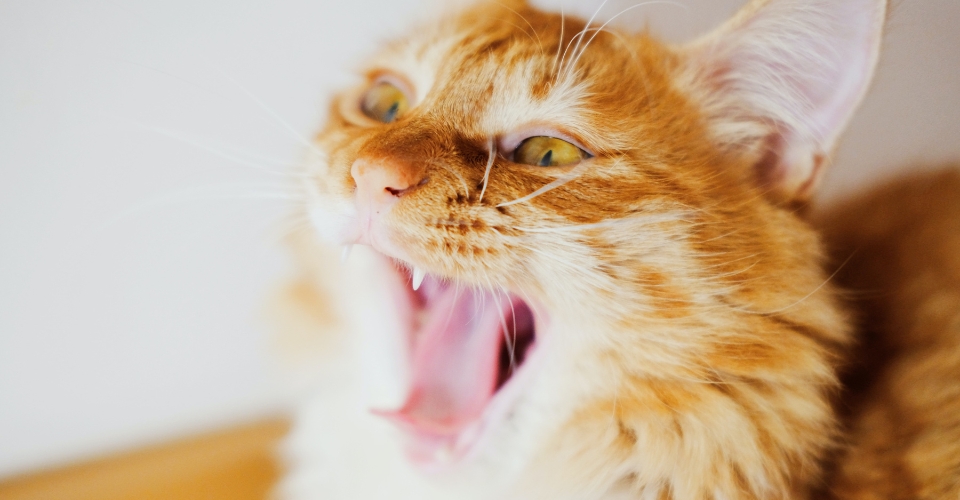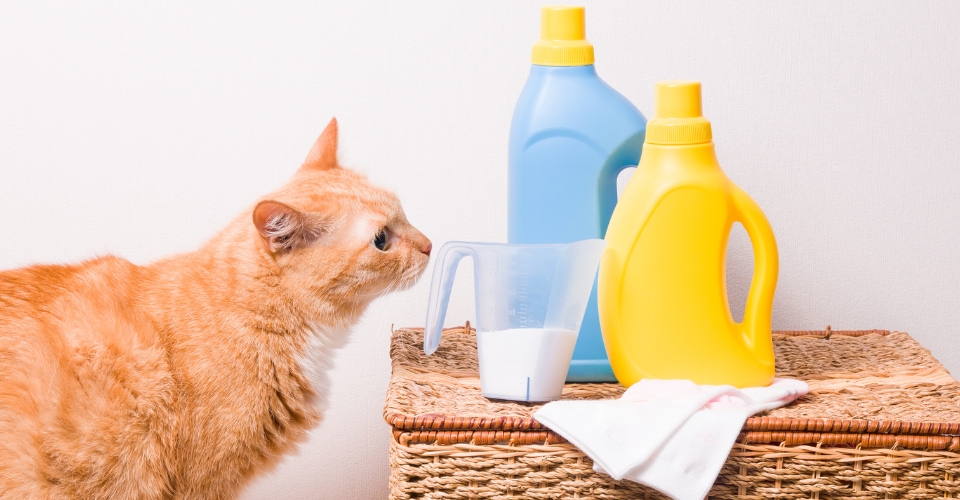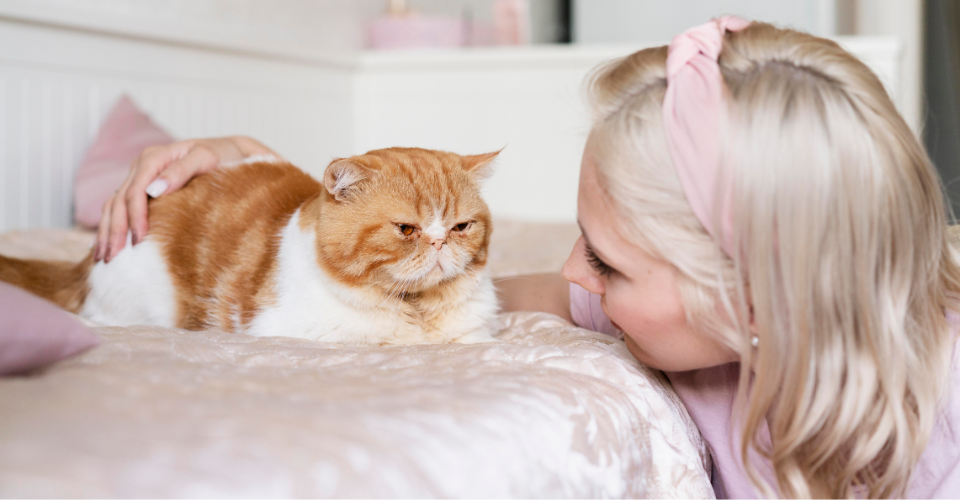You are sleeping peacefully in your cozy bed at night, and suddenly, a baby’s cry startles you out of your sleep. Only to realize there is no baby in the house, leaving you wondering where this came from.
It is coming from your cat’s room. Your cat is crying like a baby.
But why do cats cry like a baby at night? Why deviate from their regular vocalization? Well, cats have a language of their own that usually consists of meows, hissing, purring, and growling, and sometimes they make weird sounds like crying like a baby or chirping.
In this article, we will discuss why cats cry like a baby at night and how you can help your kitty.
Why Do Cats Cry Like a Baby At Night?
Often cats make a crying sound, just like a human baby. It is annoying at best and worrying at worst. A sound that humans are naturally programmed to respond to and address.
But why do cats make the voice?
Feline behaviorists suggest it is a behavior that our feline friends have learned over the course of generations as domesticated species. They do so to get our attention.
Often the behavior is employed to fulfill their late-night cravings or a need for attention. You do not want to encourage that behavior.
But there could be more serious reasons underlying the crying.
Why Do Cats Cry Like a Baby At Night? Getting an In-depth Understanding
Crying is one of the many, indeed annoying, vocalizations that our kitties resort to. Sure, they do not cry, but they are trying to communicate something.
And as responsible pet parents, it is our job to find out the reasons underlying the crying vocalizations. So, let us discuss the potential reason one by one.
Cats Cry Like a Baby to Mimic Human Baby Cries to Get Their Way
Cats communicate through their voice, posture, and contact. Vocalization is an adaptive behavior displayed by pets to get human attention.
Our tiny friends are smarter than they get credit for. Early on, they clocked the fact that vocal communication works better than visual or other forms. The domesticated cats got to experience what it is like to live with humans. In due time, they perfected the sounds that got them their owners’ attention best.
You see, humans as caregivers, are naturally programmed to jump up to help a crying baby. It is a natural call for action, and people will rush to help a baby in distress.
Only in our case the baby is actually a cat. So, whether you like it or hate it, kitties do intentionally cry like a baby to get their way.
Imagine the plight of Karen McComb, a researcher, who thought it was just her cat that made really annoying crying sounds to solicit food. Only to discover there were others, setting her on a journey to study feline purrs and the degree of urgency they created.
Turns out the naughty kitties embedded a crying tone in their regular purrs to make their owners get up and serve their highnesses. Such drama queens!
And they totally knew what they were doing. Using a vocalization that will upset their humans enough to do something about it is to let them have food. But not enough to get them relocated to another place.
It is like the pet training its humans on how to behave. Clever!
But before you jump to any conclusions, the scientific community is divided on whether it is indeed a mimicry of a crying baby.
Some believe it is just a sound that cats have learned to be effective. But others feel the cats learned it from babies and use the trick to get their desired attention. Either way, it does work in their favor.
Cats Cry Like a Baby to Communicate Pain, Fear, or a Need
But there is more to the feline cry. A snarl is also a type of cat vocalization that sounds like a baby crying when emitted with lower harshness.
Released to emote negative emotions, this could be an expression of sadness, fear, or even a need. For once, the cat crying like a baby could mean something similar to human crying. Experts, including linguists studying these sounds, suggest this vocalization is longer than others.
Depending on the context of the crying, there could even be smaller variations in the sounds. A scared cat may cry with a sound that begins with heavy breathing and ends with an abrupt vowel sound. Besides that, cats may also cry due to isolation, making a distress call for help.
Crying as an expression of pain will carry the sound of labored breathing and pressure at the throat and mouth.
To end on a lighter note, the kitty could lay their paws on prey and shriek in excitement.
For this very reason, experts believe the context of vocalization is far more important than the sound itself.
Cats Cry Like a Baby Due to Cognitive Dysfunction Syndrome
Senior cat owners would know all about this. As our furry companions age, their faculties take a hit. Among other things, it also includes their cognitive abilities.
Cognitive Dysfunction Syndrome (CDS) is the leading cause of behavioral problems among senior cats. Losing their sense of direction, elimination outside the litter box, and crying out loud at night are some of the sure-shot signs.
Sadly, the problem is often accompanied by other age-related health issues making things hard for senior cats.
Unneutered Cats Cry Like a Baby to Make a Mating Call
If you have an intact cat at home, be prepared to hear some cries. An unneutered cat will cry at night, looking for a mate.
Similarly, an unspayed female cat will cry when in heat to announce that it is looking for a mate. These sounds are called caterwauls and are impossible to ignore. Loud, wailing, distress cries, often made at night, in search of a partner.
But that is not all. If the cat manages to find a partner, it may still make crying sounds before or after mating.
What Can You Do to Address the Nighttime Cat Cries?
Great, now you know what could be bothering your cat. But you want the noise to end. Not just for a peaceful night’s sleep but for their own good. You want them to thrive with you happily.
About time to find out how.
Get a Thorough Examination from the Vet
Since medical issues are a major reason cats cry like a baby at night, get yours thoroughly evaluated by a veterinarian. Better look for signs of changes in their weight, behavior, food or water intake, and urine/feces they produce.
It is a good idea not to attribute any change to aging and automatically consider it normal. Consult your vet for a complete diagnosis.
This way, your little buddy could get timely treatment and improved quality of life.
If it is indeed diagnosed to be CDS, then the vet would suggest personalized management of the condition. Possibly, suggesting changes to diet and environmental enrichment to keep the kitty in the best possible shape.
Suppress the Urge to Give In to Their Demands
You do not want a harsh wake-up call like Dr. McComb to discover you are being managed by the kitty. You are setting a bad precedent if you give in to their solicitation demands to feed them at odd hours.
It will teach the cat to use annoying sounds and bad behavior to get whatever it wants. Who wants to see their hours of training going down the drain?
Feeding it in the evening is a great way to avoid this mess. Even though cats are crepuscular creatures, they will not bother you if they are well-fed. It means you can still have a daily routine to feed them at regular hours.
Take Care of Their Emotional Needs
Distressed or anxious cats cry like a baby at night. It can be particularly hard on our sensitive fellows when there is a big change in their lives.
Things like a relocation to a new place, an addition to the family, or even rearranging the furniture can upset them. Other problems like a lack of attention or the addition of another pet can also trigger stress and anxiety in cats.
Give them their due attention. Spend quality time together by playing stimulating and engaging games.
Understand that these factors can vary between various breeds. Therefore, getting a cat you can care for is important. And prepare them beforehand for a change.
Regardless, consult a behaviorist if you notice your cat crying and showing other signs of distress. Most likely, the kitty will come around with professional help and consistent efforts.
Get It Spayed or Neutered
In the best-case scenario, you would have avoided mating calls and associated troubles by neutering or spaying your cat. If not, you are in for some inconvenience. Besides nighttime crying and yowling, you can even have an unplanned pregnancy on your hands. So consider getting your cat spayed before she hits puberty.
Final Word: Why Do Cats Cry Like a Baby and How to Help Them?
Cats cry like a baby at night to get food or company and express loneliness, fear, pain, or excitement. An intact cat does so to give a mating call or after mating. Help these cats by ruling out medical issues, keeping them well-fed and stimulated, not giving in to their demands, and getting them neutered/ spayed.

